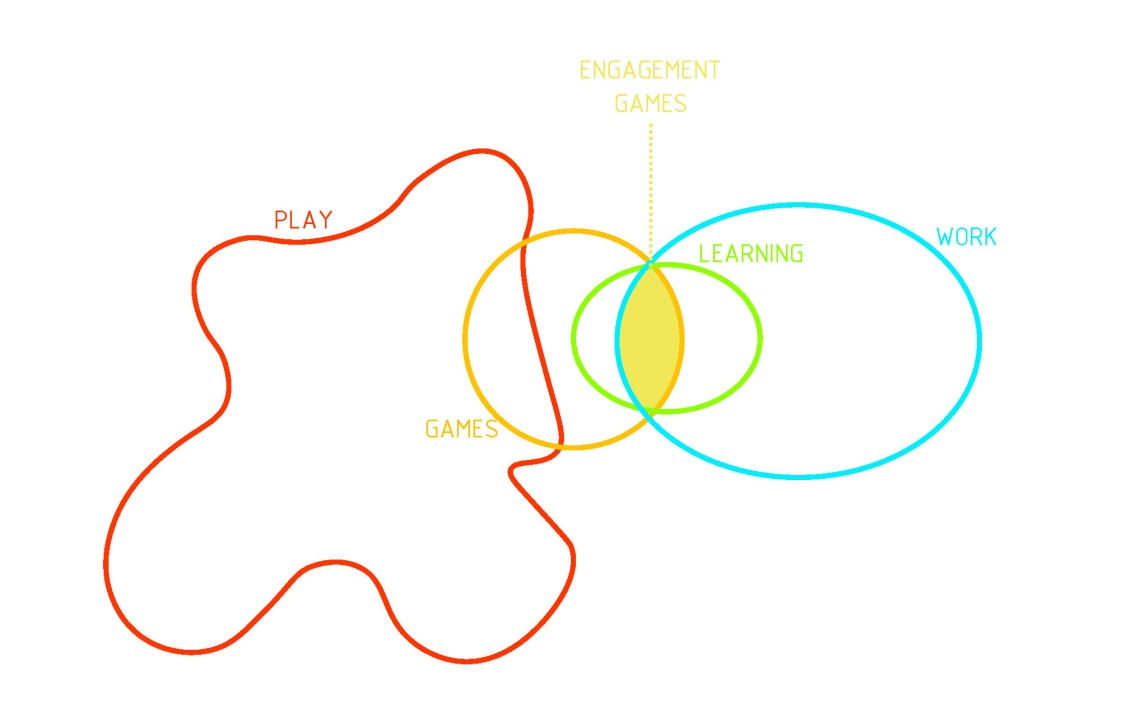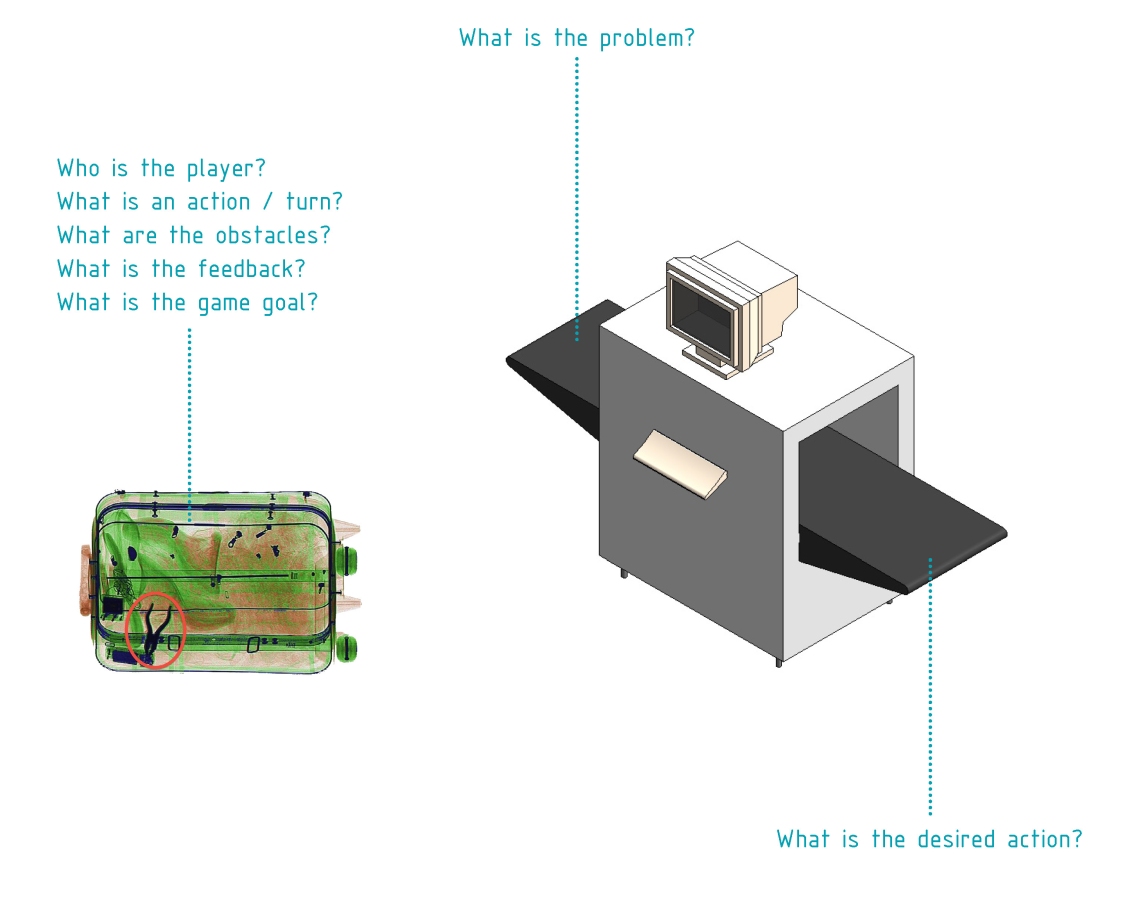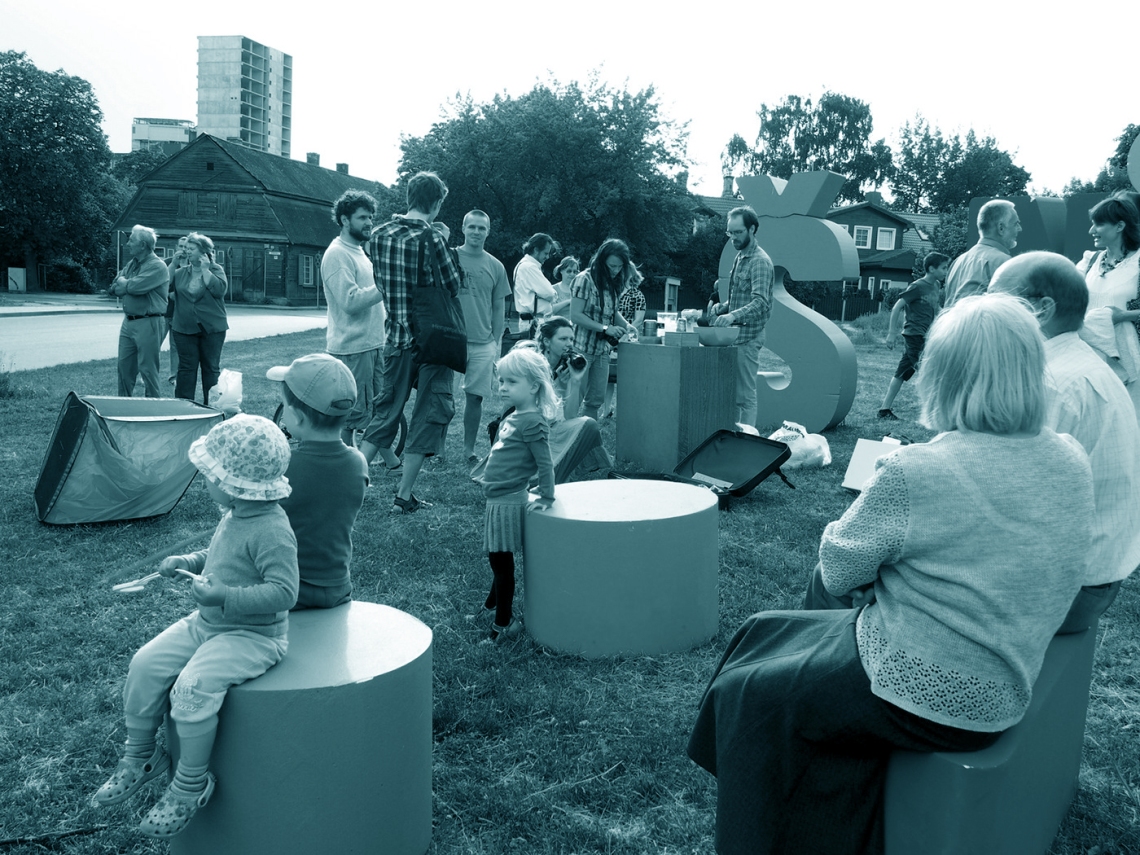There is no reason why important world affair issues shouldn’t be discussed through games, right?
District Shanghai has emerged as a mechanism for reinforcing autonomy in the Lithuanian district of Šnipiškės. It is a dynamic, multi-faceted experiment designed as a prototype to enable mini-scenarios to ‘spun’ into action plans, for discovering how existing institutions, habits and desires could be mutated into prototypical urban operations – into Liminal Bodies which become stepping stones in more comprehensive and intertwining scenarios for urban development in the neighbourhood. (CHORA, 2011)
The players move through the stages of observers, designers, narrators and activists. They re-invent the pattern of dynamic organisation of small areas in Shanghai on the basis of pinpointing the dynamics surrounding infrastructures of autonomy.

Games can be catalysts for the power and productivity of playful learning. People are often drawn to games because they create a magic circle, or game world, in which a defined set of rules apply, sometimes different from the real world.
Community engagement games use game mechanics to bring play and serious real world processes together, so that real action occurs while playing the game. Fusing a sense of play onto serious processes—from community deliberations to disaster preparedness—can result in increased participation and diversity, increased trust in the system and each other, and most importantly, increased ability to understand and affect change.

District Shanghai has been designed as a tool to bring together diverse community groups in a creative, collaborative, and playful approach to learning about pressing social & political issues. The games requires players to address real neighbourhood problems by learning from peers and community members and drawing on core content knowledge.
It has been created as community brief generating tool that challenges conventional approaches to design and social projects and ultimately tackles the planning system and authorities’ governance.

Urban letters, Laimikis.lt (Laimikis.lt, 2013)

1 Comment